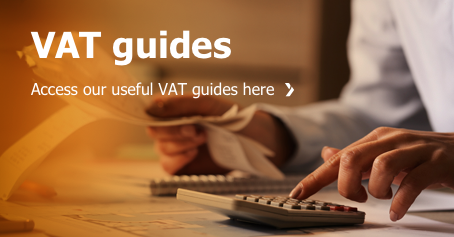Netherlands VAT Guide

Jan Slagter
Netherlands VAT specialist
Jan studied Tax Law at the Rijksuniversiteit Groningen and is as VAT Director head of the VAT team at Kreston Bentacera, an accountancy firm with 7 offices located in the north of the Netherlands. Jan mainly focuses on advising non-resident companies that want to do business in Europe, both B2B and B2C where tax representation plays an important role in the service. One of Jan’s main motivations is to fully assist foreign clients so that they feel comfortable in a foreign tax jurisdiction.
In addition, Jan is Business Development Director within the Global Indirect Tax Group. Jan says: ‘An important and especially challenging role; this is what the Kreston network is all about. When every member makes a small contribution to the network, it can have a huge impact overall. I hope that using my open personality, I can convince everyone of this.
- Selected for the University of Groningen`s Honours College Programme
- Member of “Register Belastingaviseurs (RB)”, (the largest professional association of tax specialists in the Netherlands for more than 90 years)
-
- Spoken languages: English, German
- What is the tax called?
- What is the tax authority?
- What type of tax is it?
- What is it due on?
- What are the VAT rates?
- What does a VAT number look like?
- Is there a registration limit?
- When does a non-established entity need to register?
- When is the place of supply in the NL?
- Any special rules?
- Does a non-established entity need a fiscal representative?
- How often do VAT returns need to be submitted?
- Are penalties imposed for late registration?
- Are penalties imposed in other circumstances?
- Can VAT incurred by non-NL businesses be recovered?
- Can VAT be deducted?
- Do I need to issue an invoice?
- Other
What is the tax called?
BTW – Belasting Toegevoegde Waarde (in English: Value Added Tax) and Omzetbelasting (in English: turnover tax)
What is the tax authority?
Belastingdienst
What type of tax is it?
Consumption based tax on consumers, on business transactions and imports
What is it due on?
Taxable turnover – VAT is levied on supply of goods and services where the ‘place of supply’ is NL
VAT is also levied on import of goods
What are the VAT rates?
Taxable:
21% – default (standard) rate
9% – reduced rate
0% – zero rate
9% – reduced rate eg
- Food and water
- Medicines and health care aids
- Art and antiques
- Books
- Some labour intensive services
- Some services related to residential space
- Short stays In tourist accommodations
0% – zero rate eg
- Exports
- Goods delivered to a bonded warehouse
- Excise goods delivered to an excise warehouse
- Some goods and services related to seagoing vessels
Exempt from VAT eg
- Services regarding finance
- Services regarding insurance
- Real estate sales (older than 2 years after first usage) (VAT option possible if buyer performs mostly VAT-taxed activities) (sales of new and sales of “essentially new constructed real estate” are taxed)
- Real estate rental (VAT option possible if buyer performs mostly VAT-taxed activities)
- Healthcare
- Education by eligible bodies
- Services and/or sales if opted for the Small Businesses Scheme (maximum annual threshold € 20,000 turnover)
What does a VAT number look like?
NL 1234.45.678.B.01
Note: All Dutch private individual entrepreneurs have two Dutch VAT numbers:
- The VAT number is for contact with the Dutch tax authorities only (cannot be verified in VIES)
- The VAT identification number is for business transactions (can be verified in VIES)
Is there a registration limit?
NL established businesses do not have to register for VAT-purposes if there is no requirement to register at the Dutch Chamber of Commerce, and if turnover is € 1,800 or less (annual threshold)
When does a non-established entity need to register?
- When a non-established business imports goods into the NL under their own name and does not use a fiscal representative
- If it trades goods in the NL and if the domestic reverse charge scheme does not apply
- If the place of supply of services is deemed to be in the NL and if the domestic reverse charge scheme does not apply
- Non-EU businesses in order to request a VAT-refund
Special registration rules apply for distance sales (One-Stop-Shop scheme / OSS and Import One-Stop-Shop scheme / iOSS)
When is the place of supply in the NL?
A supply of goods that physically takes place in the
NL (both B2C and B2B)
B2B services
- If the recipient is established in the NL (main rule)
B2C services
- If the service provider is established in the NL (main rule)
Exemptions B2B services
- Services related to real estate located in the NL
- Services, including admissions, linked to physical performance, including artistic, cultural, educational, sporting, entertainment, exhibition and conferences/meetings; if held in the NL
Exemption B2C services
- Services related to real estate located in the NL
- Services, including admissions, linked to physical performance, including artistic, cultural, educational, sporting, entertainment, exhibition and conferences/meetings; if held in the NL
- Expert examinations and work related to movable property
- Short-term rental (i.e. a period not exceeding 30 days and for ships not exceeding 90 days) of a mean of transport if the means of transport is made at the disposal of the customer in the Netherlands
- Long-term rental of a means of transport if the customer has its domicile or usual residence in the Netherlands
- Passenger and freight transport
- Restaurant and catering
- Digital, telecommunications and broadcasting if the consumer is domiciled or has its usual resident in the Netherlands
- Several specific services
Any special rules?
Several special rules/schemes apply in the NL, such as:
- Distance sales schemes
VAT on distance sales to consumers is due in the EU country where the consumer is established. A regular VAT registration in that country is then required or a special scheme (OSS) can be used
OSS registration can be done in a EU country of choice. VAT payable on B2C distance sales for the whole EU can be accounted for in that OSS return
For trading of goods with a maximum value of € 150, imported from outside the EU, a registration for the EU (iOSS-scheme) can be made to pay for NL VAT
owever if the sale takes place from a marketplace (eg Amazon), the sale is deemed to be from the marketplace for VAT purposes and registration is not needed. This is also the case for goods already in the EU with a value of more than € 150
Special rules also apply for:
- sales of excise goods
Further, special rules/schemes (could) apply, such as:
- Travel agency scheme
- Margin scheme on second-hand goods
- Offering credit notes or vouchers
- Obligatory VAT reverse charge schemes (eg in case of trade in electronic equipment) (eg in case of subcontracting) (eg in case of outsourcing staff)
VAT Group:
- Businesses established in the NL can opt to be treated as a VAT group, provided conditions are met
Furthermore, special “use & enjoyment”-rules (could) apply in case:
• Non-EU suppliers provide services to NL non-VAT registered clients:
– Consulting services
– Transport rental
– Copyright transactions
– Financial services
– Advertising
– Hiring staff
– Lease of movable property
If the actual use and enjoyment of these services is in the NL, the place of supply is deemed to be the NL
Does a non-established entity need a fiscal representative?
Fiscal representation in the NL is required:
- In order to use a VAT deferment scheme for VAT levied on import in the NL (“article 23” permit)
- To be registered in the NL for the iOSSscheme
- For the import of bulk goods (eg mineral oils) into the NL
How often do VAT returns need to be submitted?
Normally quarterly – can be monthly or annually
Are penalties imposed for late registration?
Yes – up to 5 years – the unpaid tax is due plus a % penalty, from 0% to 100% depending on how the error arose, if is has been brought to the tax authorities’ attention voluntarily, how late the notification is and the cooperation of the taxpayer in resolving the issue
Late registration could also lead to a rejection of a VAT refund request
Are penalties imposed in other circumstances?
Yes – penalties are charged for:
- VAT return errors (up to 5 years old and between 0% and 100% of tax due depending on circumstances) and
- late submission and/or payment (sliding scale depending on history).
Can VAT incurred by non-NL businesses be recovered?
Non-NL EU businesses that incur VAT in the NL whilst on business can request for a NL VAT refund at their local tax authorities (digital/portal)
Non-NL non-EU businesses that incur VAT in the NL whilst on business can file a refund request at the
Dutch tax authorities
Both procedures have precise rules and time limits for submission of claims
Can VAT be deducted?
VAT incurred on expenditure can be reclaimed where it is used in connection with ‘taxable’ transactions, being at the standard rate of 21%, the reduced rate of 9% or the zero-rate of 0%
VAT on expenditure used in connection with exempt transactions cannot usually be reclaimed
Do I need to issue an invoice?
- Invoices must be issued (main rule)
- In most cases no invoice needs to be issued when supplying private persons (specific rules apply eg when a car or other means of transport is sold to a private person in the NL)
- Specific rules apply for distance sales
- There are specific requirements for what is included on invoices (eg invoices may be raised in foreign currency but the VAT amount must be quoted in euros)
Other
The Caribbean Netherlands (Aruba, Bonaire, Curaçao, Sint-Maarten, Saba and Sint-Eustatius) are considered not to be part of the EU and have different VAT/indirect tax rules.

